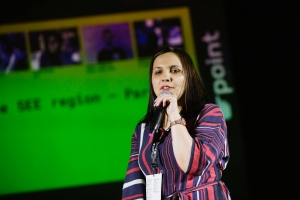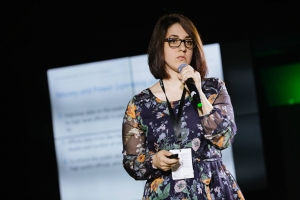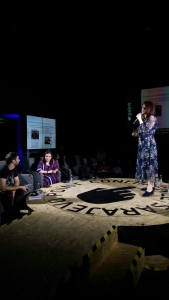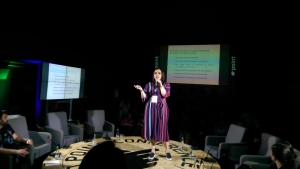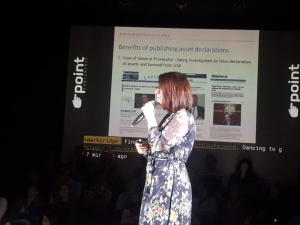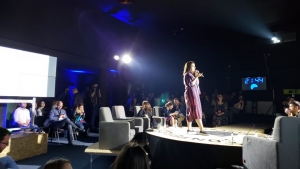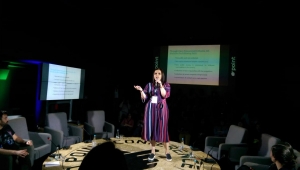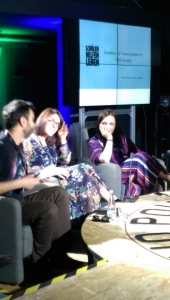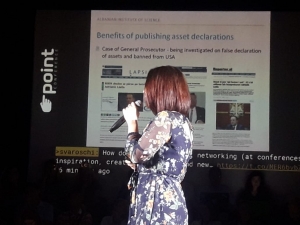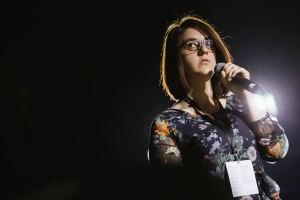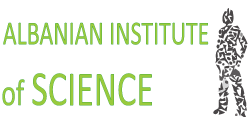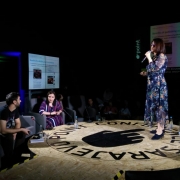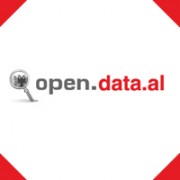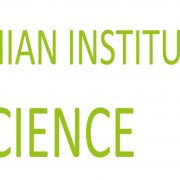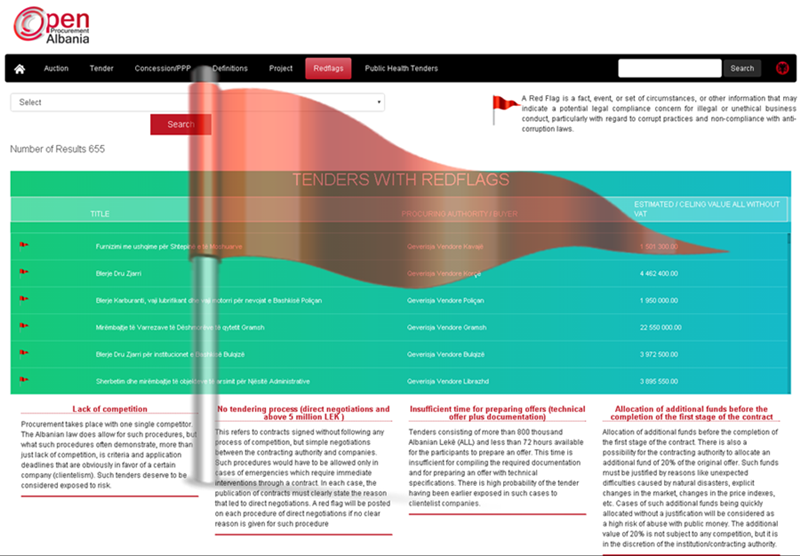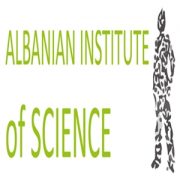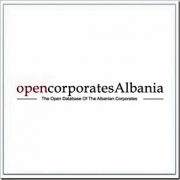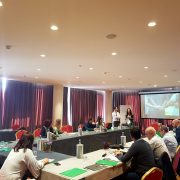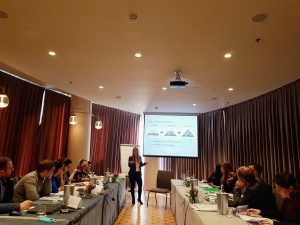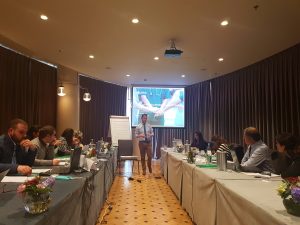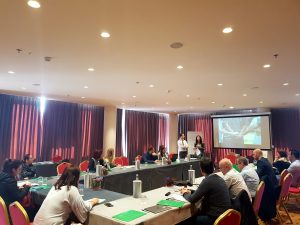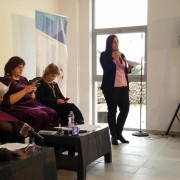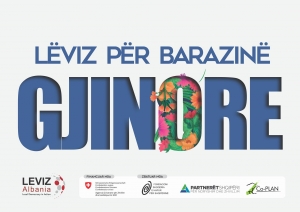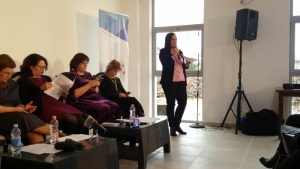In the framework of its Monitoring Conflict of Interest of Donors for the 2017 Electoral Campaign Project, AIS has identified the donors of the electoral contestants for the 2017 general elections.
Identification was made taking into consideration their economic interests, benefits from public procurement, and incomes from payments received from the state budget (treasury transactions).
We have also compared the list of identified donors with that of the debtors to the tax authorities to see whether any of these donors owe money to state institutions.
It is a total of 66 private individuals and business companies declared as electoral donors in 2017 according to the financial reports published on the website of the Central Election Commission. This includes only donors, who have donated more than 100 000 lekë[1].
Online financial reporting is a new development for the electoral subjects. They have also been subject to financial auditing by independent certified accountants appointed by the Central Election Commission through a lot procedure. Significant differences are found between the self-declared financial reports, though, and the findings of the auditors[2]. This is an indication of two issues: a. Problems with the professional capacity of the political party finance officers, b. Fictitious reporting, i.e. data not reflected on the parties’ online financial reporting are found by the auditors during and after the electoral campaign.
Discrete Cases: Among the 66 identified donors, there are two in particular, who seem to be in a conflict of interest referring to Article 89 of the Electoral Code.
The Code provides that: Legal persons and any shareholder thereof shall not be allowed to donate funds if they meet in any of the following conditions: a) has benefitted public funds, public contracts, or concessions over the two last years by the amount of more than 10 million lekë; b) exercise an activity in the area of media; c) has been a partner in public funds in various projects; ç) has outstanding monetary debts to the state budget or any public institution. This obligation shall not apply when a shareholder owns his shares as a result of a public offer.
The law, however, does not provide for certain conflicts of interest regarding public funds, assets, or services. This includes donors, who have benefitted from programs of public subsidies, loans guaranteed by public funds, privatization of public assets, legalization, or public programs for business support.
In order to identify cases of conflicts of interest already foreseen by the law (Article 89, point 2 of the Electoral Code), the following steps, we took the following steps:
- Identified business companies owned by individual donors (donor being the owner and shareholder at the same time). Source of information: National Business Center.
- Checked whether these individual donors had benefitted from public contracts through public procurement. Source of verification: Open Procurement Albania Database and the website of the Public Procurement Agency.
- Checked whether these donors are in the list of tax debtors. The list is publicly available online on the website of the General Tax Directorate.
- Checked whether these donors have been partners in, or direct beneficiaries of, public funds. For that, we consulted the payments made by the state treasury. We only searched for direct beneficiaries, and not for co-contractors, where it is only the leading beneficiary, and not all the beneficiaries reflected as receivers of state money.
Difficulties and challenges with the verification process:
- Information about donors owing money to public institutions. The list of tax debtors is the only source of verification available for this kind of information. There are no data about other forms of debts to the state, like contractual damages or outstanding payments of extra fees, which are not reflected on the list of taxes collected by the General Tax Directorate.
- The information available about public tenders or treasure transactions refers only to the leading contractor in case of joint tenders (two or more business companies awarded a public contract). Therefore, even though not on the list of beneficiaries, co-contractors in this case still benefit under the name of the leading contractor.
- The definition for ‘shareholder’ in the law leaves room for interpreting whether provisions on the conflicts of interest refer also to the company partners. Shareholders in our verification process include anyone, who owns a part of the capital of a legal and economic entity.
Our verification of direct donors includes:
- 66 monetary or ‘in kind’ donors declared by the political parties on their online financial reports on the website of the Central Election Commission.
- 64 individual donors and 2 legal persons (“K&H Law Firm shpk” as an ‘in kind’ donor of People’s Alliance for Justice Party and “Linda 80 shpk” as an ‘in kind’ donor of the Albanian Demo-Christian Union Party).
- The legal person registered as “Linda 80 shpk” seems to be in a conflict of interest if we refer to Article 89, point 3(a) of the electoral law. There is no information whether this company has signed a declaration for preventing conflict of interest. The company is public tenders and contracts above the foreseen value over the last two years. Its passport[3] is awarded the following tenders with municipalities and the health sector: a total of 17 contracts with local government authorities, including 2 municipalities and 12 contracting authorities in the amount of 81 400 902 lekë (eighty one million four hundred thousand and nine hundred and two) Albanian Lekë; 5 contracts in the health sector with two contracting authorities in a total amount of 5 324 516 (five million three hundred twenty four thousand and five hundred and sixteen) Albanian Lekë. Our verification with the state treasury transactions show that the company is paid a total of 144 460 120 (one hundred forty for million four hundred sixty and one hundred twenty) Albanian Lekë for two years (June 2015 – June 2017). This company may, therefore, not be a donor in elections. It is worth noting that the information provided in the financial auditors’ reports by the independent certified accountants do not include any assessment of compliance with Article 89, point 3 of the electoral law. Such reports do not mention whether any declarations on conflicts of interest was signed by the donors, which is an obligation both for the donors and the political parties receiving donations. Auditors do provide, though, data on the ‘in kind’ donors on Table 2 “Incomes” of the report, confirming declarations made by the political parties themselves on their online financial reports.
- The other company, K&H Law Firm shpk, does not seem to have received any payments from public funds, public contracts, or owe any money to the tax authorities.
- None of the companies is on the list of tax debtors of the General Tax Directorate.
Verification of the individual donors registered as legal persons.
- Out of the 64 individual donors (who have donated more than 100 thousand lekë) of the political parties in elections, 64 seem to be associated with 42 entities registered by a tax number.
- Verifying whether a private individual corresponds with that of a donor on the list of donors was difficult, because the National Business center provides only a partial identification of entities registered by a tax number (number of passport or identity card).
- However, individual donors registered with the tax authorities (by the same name and surname) did not seem to have benefitted from tenders or payments from the state treasury, so there was no need for any further investigations.
- Regarding debts to the public institutions, one of the donors, E.S, is a shareholder (by 5% of the shares) in Royal Farma, a company registered by Tax Number L01606005J, and a debtor in the March 2018 List of Debtors of the General Tax Directorate since 2014. Source of information: List of taxpayers with a mortgage burden as a guarantee for their outstanding taxes. The individual donor, therefore, falls under the prohibition provision of Article 89, point 3 of the electoral law.
Donations from media companies: Monitoring conflicts of interest as per Article 89, letter b, turned out to be a sensitive process following the legal amendments made prior to the 2017 electoral campaign, allowing for free air time. Such legal provision falls contrary to Article 89, point 3/b of the electoral law, which prohibits entities exercising activities in the area of media from donating funds for electoral purposes. Thus, several political parties have declared donations consisting of free airtime.
Airtime for electoral purposes is sometimes reported as a donation, sometimes as a bill to be paid.
Nevertheless, the funding of electoral subjects by media entities must be carefully seen from the perspective of legal amendments expected to be made.
Public officials as donors of electoral subject. The list of donors includes many high-ranking public officials, including the current President of the Republic, who was just voted as President at them time, but not yet under oath.
AIS has also prepared some draft amendments for more efficient regulation by the Electoral Code regarding transparency and monitoring of the conflict of interest of donors of the electoral subjects.
Some of our conclusions for a more efficient regulation by the electoral law include:
- Information in real time on donations for electoral purposes (monetary donations). This regulation is based on Article 9, paragraph 3 of the Constitution, which provides that “The financial sources of the political parties, as well as their expenditures, shall always be made public”. Such regulation has already been in the Electoral Code, but it was removed with the amendments made to Article 90, paragraph 1, which provided that: The list of persons who donate no less than 100 thousand lekë, and the corresponding amounts, shall always be made public. However, the changes made by Law No. 74, dated 19.07.2012, this sentence was removed, marking thus regress with the right to information about the supporters of a political party through donations even before the election day.
- The law must clearly prohibit any donation, subsidy, or loan relation between the electoral subjects and the media entities. The article on conflict of interest, i.e. Article 89 of the Electoral Code, excludes entities, which exercise media activities, or are shareholders in such entities, from being donors of electoral subjects. This is in line with the principle pf the independence of the media and separation of the two powers. Article 84, paragraph 6 of the Electoral Code, on the other hand, introduces an additional financial source for the important political parties. Media is thus obliged by law to donate airtime to the political parties, which have already used a certain part of paid advertising. This article must be abrogated, because: 1. it creates donation relations that fall contrary to the provisions under Article 98; 2. creates difficulties for monitoring; 3. is arbitrarily used even in local elections, even though it must only apply to the general elections; 4. It’s not a situation where political parties have problems paying for advertising. Political advertising has become quite massive in election media coverage and, ideally, all subjects must be rather focusing more on the quality, instead of the quantity of their message and advertising.
It is also the time, where media, including audio-visual media, is not limited to licensed national media only. There is a variety of audio-visual coverage nowadays base on the new technology.
The regulation of free advertising made through changes to the Law on Political parties in May 2017 is equally wrong and contradictory to the current Electoral Code.
The new Electoral Code shall have to be exhaustive in prohibiting donations by media to electoral subjects. Media entities must be only allowed to enter commercial agreements with electoral subjects, which should, ideally, be accessible to the public if such agreements are related with elections. Outstanding bills and taxes must also be carefully seen. Commercial entities do certainly have the right to claim payment of the invoices they have issued. However, when the debtor is a political party in power, this could be intimidating. In order to prevent situations, where debts are turned into donations, the electoral law must also enable the Central Election Commission to intervene when distributing the annual or electoral fund to the parties, giving priority to outstanding and recognized obligations during electoral campaigns. The same priority should also apply to public funds when such funds are allocated to parties to owe money to non-media entities.
- More effective regulation of cases foreseen as donors’ conflicts of interest. Legal provisions must be expanded to also include prevention, declaration, and conflict of interest for donors. Article 89 of the Electoral Code does include some prohibitions. This article also needs to be better regulated and expanded. Thus, the word ‘shareholder’ should be rather replaced by the word ‘owner’. In addition to public contracts and public funds, benefits from programs of public subsidies must also be foreseen as conflict of interest, as well as loans guaranteed by public funds, benefits from privatization of public assets, benefits from legalization; benefits from public programs supporting business, etc.
- Introduction of a legal provision on administrative verification of cases of conflict of interest. It would be useful to give the CEC the authority to make administrative verifications and investigation. This could be done through requests for information addressed to public institutions on compliance with the legal provisions on conflicts of interest. This could include verification with the tax authorities about tax debtors, Public Procurement Agency about public contracts, Concessionary Register about concessionary contracts, and so on. Sanctions on false declarations on conflict of interest could also be introduced in the Electoral Code.
[1] http://open.data.al/sq/lajme/lajm/id/2011/Lista-e-Donatoreve-per-fushaten-zgjedhore-2017-shume-mbi-100-mije-leke
[2] http://financial.cec.org.al/
[3] http://www.opencorporates.al/sq/nipt/k37513530u
